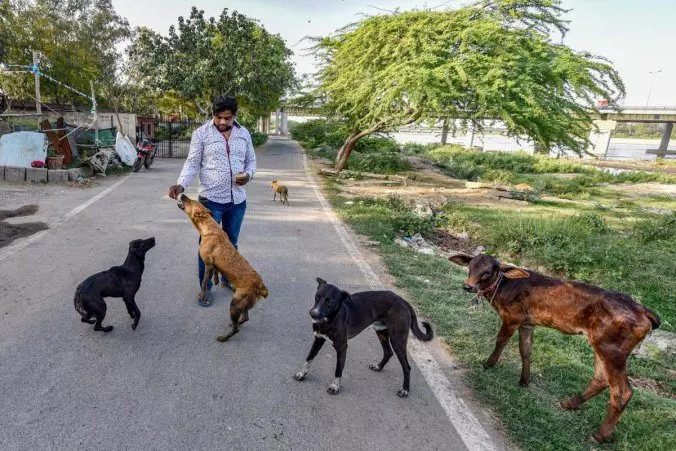
- Home
- India
- World
- Premium
- THE FEDERAL SPECIAL
- Analysis
- States
- Perspective
- Videos
- Sports
- Education
- Entertainment
- Elections
- Features
- Health
- Business
- Series
- In memoriam: Sheikh Mujibur Rahman
- Bishnoi's Men
- NEET TANGLE
- Economy Series
- Earth Day
- Kashmir’s Frozen Turbulence
- India@75
- The legend of Ramjanmabhoomi
- Liberalisation@30
- How to tame a dragon
- Celebrating biodiversity
- Farm Matters
- 50 days of solitude
- Bringing Migrants Home
- Budget 2020
- Jharkhand Votes
- The Federal Investigates
- The Federal Impact
- Vanishing Sand
- Gandhi @ 150
- Andhra Today
- Field report
- Operation Gulmarg
- Pandemic @1 Mn in India
- The Federal Year-End
- The Zero Year
- Science
- Brand studio
- Newsletter
- Elections 2024
- Events
- Home
- IndiaIndia
- World
- Analysis
- StatesStates
- PerspectivePerspective
- VideosVideos
- Sports
- Education
- Entertainment
- ElectionsElections
- Features
- Health
- BusinessBusiness
- Premium
- Loading...
Premium - Events

In the wake of SC order to shift strays to shelter homes, the lesson here is -- it's not wise to allow activists to frame policies and laws as they tend to take extreme positions
Dogs do not belong to/on roads. They can be kept as pets in flats, houses, and compounds, leashed or otherwise, but they cannot be abandoned on roads to fend for themselves or depend on benevolence. Streets are meant for walking; they cannot be the habitat of stray animals.
Which is why the Supreme Court's landmark order to move dogs from the streets to mass shelters needs to be discussed and debated.
In April 2025, the Press Information Bureau reported that India recorded 37.15 lakh dog bite cases in the year 2024. In the previous year, there were 30.52 lakh cases. The figures for Delhi were 25,210 and 17,874, respectively. It got the information from the Integrated Disease Surveillance Programme. It put the number of reported deaths from rabies at 54 in 2024 and 50 in 2022.
Animal Birth Control rules
The Animal Welfare Board of India (AWBI) has no data on the number of dogs in the country. It does not say what percentage of them have been sterilised and vaccinated. Under the Animal Birth Control (ABC) rules of 2001, which were revised in 2023, only incurably ill (including from rabies) or mortally wounded dogs can be put to sleep with an injection of sodium pentobarbital or another approved humane manner by a veterinarian. They cannot be culled.
Also Read: SC directs shifting of Delhi stray dogs to shelters, warns against interference
Though high courts, such as those of Karnataka, Maharashtra, and Himachal Pradesh, have reinstated the power of municipal corporations to kill stray dogs for the safety of people, the Supreme Court has stayed their orders. Stray dogs can be captured for sterilisation and vaccination (against rabies), after which they have to be returned to where they were picked up. The rules require representatives of local bodies or the association of apartment residents to feed the “community” dogs or designate areas for those who wish to feed them.
Street dog menace
In July 2020, Coomi Kapoor, consulting editor of The Indian Express, wrote an article highlighting the growing menace of street dogs, which she attributed to the leniency shown by animal rights activists. She said she was mauled by a rabid dog, which also bit a three-year-old child, two pet dogs, and a security guard. She said in her Delhi neighbourhood of 270 residents, there were 33 feeding spots for dogs, and the activists would not agree to reduce the number to 10.
Also Read: Maneka Gandhi slams SC order on stray dogs: 'Impractical, financially unviable'
The elderly were bitten by pesky dogs that were not receiving their usual share of biscuits due to the lockdown (this was during the COVID-19 pandemic). Activists saw those walking with sticks to fend off the strays as intimidating or provocatively coming in their way.
In support of sterilisation
Following that article, Hiranmay Karlekar, a former newspaper editor and ex-member of AWBI, wrote a rejoinder supporting sterilisation, stating that it eliminates two key causes of aggression in female dogs: heat cycles and caring for litters. The third cause was hunger. “Feeding stray dogs is important,” he wrote. “A well-fed dog is less likely to be aggressive than a hungry one.”
Also Read: Why PETA, animal activists are protesting SC order to 'cage' stray dogs
He said distributed feeding areas were needed because dogs are territorial and will not let other dogs into their area. (What he didn’t say was that territorial dogs can behave like feral pack animals with humans, too.)
Being less likely to be aggressive doesn’t mean they won’t be. And hunger will stalk stray dogs on the streets because there is not enough benevolence going around. Streets are also unsafe for dogs. They can be killed or maimed, and disabled animals are less likely to be able to fend for themselves.
Maneka Gandhi's rebuttal
There was also a rebuttal from Maneka Gandhi, who has played a pivotal role in framing the country’s animal rights policy and laws. She said (without attributing the source) that there were 8 lakh dogs in Delhi in 1980, and according to a 1987 survey by the Municipal Corporation of Delhi, their number remained at 8 lakh despite extensive culling. The survey also showed, she said, that the number of people bitten by dogs increased when more dogs were killed (without explaining why).
Also Read: Rahul slams SC order on stray dogs: 'Cruel, shortsighted’
In that 2020 Indian Express article, she said (again without naming the source) that Delhi had 1 lakh dogs, suggesting that sterilisation had been effective. But now, after the SC order, she claims their population in Delhi is 3 lakh. How did the numbers rise? Maneka said that dog bites in Delhi had decreased from 72,000 a year to 12,000. She attributed these not to strays, but “foreign pets” who want to protect their owners.
Sensible policy-making
Also Read: Celebs term SC order on stray dogs ‘death sentence’, seek review
The 2017-notified rules for cattle trading required extensive documentation. A person selling cattle was required to provide the name, address, and photo ID of the owner, as well as details about the animals. The seller had to provide proof of identity and the revenue document proving he was an agriculturist. Both buyer and seller had to undertake that the animals were not for slaughter. Five copies of the proof of sale had to be furnished to various authorities. They and the seller had to retain the documents for six months.
Those rules were so impractical, they were withdrawn shortly after notification.
We need a return to sensible policy-making where lawmakers listen to various sides and make commonsensical decisions. They cannot outsource the function to activists. When fundamentalists make laws, they are bound to be oppressive.
Also Read our another piece: Why SC directive cannot be implemented at all
(The Federal seeks to present views and opinions from all sides of the spectrum. The information, ideas, or opinions in the articles are of the author and do not necessarily reflect the views of The Federal.)


